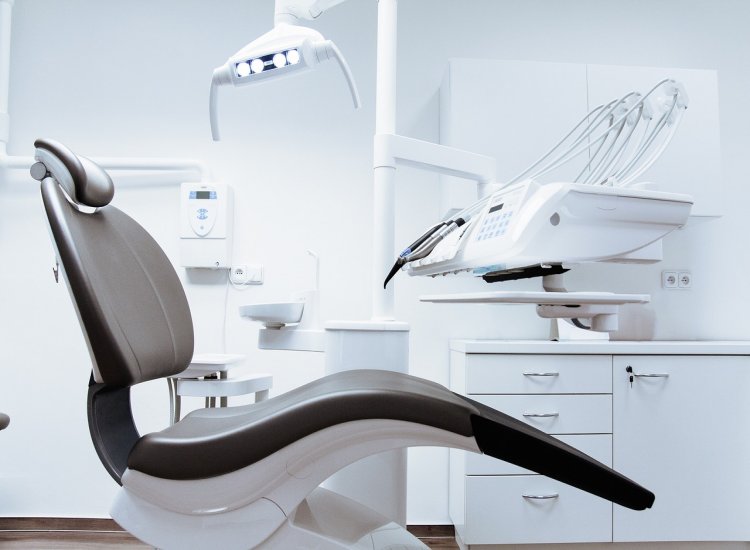

The shortage of dentists in Dublin and across Ireland has become a pressing issue according to Smile Hub, affecting both urban and rural communities. With an increasing demand for dental care and a limited supply of dental professionals, many residents find it challenging to access timely and adequate dental services. This guide aims to explore the reasons behind this shortage, its impact on the community, and potential solutions to address the crisis.
The Current State of Dental Care in Ireland
Dental care is an essential aspect of overall health, yet many people in Ireland struggle to access the services they need. Ireland is grappling with a critical shortage of dental practitioners, leading to frustratingly long wait times for essential dental care.
The Irish Dental Association (IDA) has highlighted this pressing issue, stating that nearly 500 additional dentists are urgently needed to meet the growing demand. Alarmingly, one in six patients experiences delays of over three months for routine and specialised dental appointments, underscoring the severity of the situation.
Today, the dental sector faces a critical staffing and resourcing crisis. This issue is the most significant challenge for dentists today and, if left unaddressed, will make accessing essential dental care increasingly difficult, particularly for the most vulnerable in our society.
This is not a new problem. As far back as the late 1930s, Ireland has struggled with a shortage of dentists. The issue has never been about producing enough dentists—our universities have consistently graduated healthy numbers. The challenge has always been retaining them. It’s remarkable how closely this echoes the situation today.
Our dental schools at University College Cork (UCC) and Trinity College Dublin have not seen significant expansion or investment in decades. Consequently, they do not produce adequate dentists to meet patient demand. Despite promises, the plotted establishment of a dental school at UCC has not progressed since Minister Simon Harris turned the sod on the development in 2019.
But that’s only part of the problem.
These schools rely heavily on fees from international students. Last year, 50% of the 300 students enrolled in our dental schools in Cork and Dublin were from overseas, meaning that barely half of the 70 dentists who graduate each year opt to practise in Ireland long term. In contrast, 80 years ago, 60 students were enrolled and chose to practise locally.
This highlights the current reality: fewer and fewer dental graduates are joining the dental workforce in Ireland. We estimate that hundreds more dentists, hygienists, and dental nurses are needed to meet the demands of a growing population and to replace the dentists that retire from both public and private sectors.
Addressing this shortage requires a multifaceted approach, including increased investment in our dental schools, better retention strategies for new graduates, and policies to attract and retain international dental professionals. Only by tackling these issues head-on can we ensure that everyone in Ireland has access to the dental care they need.
Past Decisions That Still Plague Us Today
The impacts of past and present government decisions continue to haunt us today, creating significant challenges in the dental sector.
And the list goes on.
A vocational training scheme for dental graduates was abolished, leaving new graduates without structured support as they transition into practice. Additionally, dental nurses have been added to the list of ineligible occupations for work permits, preventing non-EEA dental nurses from working in Ireland.
Legislation to regulate dentistry — which would ensure the highest standards of education and training for the benefit of patients — has been promised for years, yet there is still no sign of a new bill. The existing legislation dates back to 1985. While the laws governing medicine, nursing, pharmacy, and veterinary medicine have been modernised in recent years, dentistry has seen no such updates, despite repeated calls for reform.
The medical card scheme, established in 1994, suffered significant cuts following the financial crisis of 2008. Reimbursement levels to dentists were reduced, and the range of treatments available to medical cardholders was severely limited, often restricted to emergency dentist cases only. This outdated scheme — which predates the internet and mobile phones — dictates the materials dentists can use and the procedures they can perform, with only tooth extractions being unlimited.
Currently, barely 600 dentists are operating under this scheme to serve 1.5 million adults nationally.
As we move into our centenary year, our call is once again directed to the Government and, in particular, the Minister for Health. We urge them not only to join us in reflection but to be the catalyst for favorable action and necessary reform.
We all have a choice: to learn from the past and enact change or to allow history to continue repeating itself. As we reflect on the past 100 years of dentistry in Ireland, we hope our policymakers do likewise.
Final Thoughts
The shortage of dentists in Dublin and across Ireland presents significant challenges to accessing quality dental care. Looking at the root causes of this issue and implementing targeted solutions, can help us work towards a future where dental services are readily available to all residents. Through increased educational opportunities, retention strategies, international recruitment, rural incentives, and enhanced public services, we can address this crisis and ensure that everyone in Ireland has the dental care they need.
Addressing the shortage requires a collective effort from government bodies, educational institutions, and the dental community. Together, we can create a sustainable and accessible dental care system for all.


